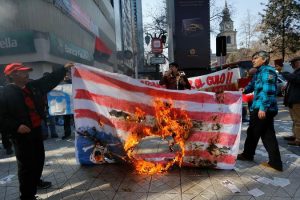The two research topics that I am interested in learning more about include women’s fashion in Latin America and the literary movement, known as the Latin American Boom that took place during the 1960s and 1970s.
Although fashion may seem trivial to some people, I think of it as a form a cultural expression and as a way of revealing more about an era and its people. It would be interesting to discover some of the traditional attire that define Latin American fashion and culture, as well as the influences that have led to newer pieces. One particular designer that I am familiar with is Oscar de la Renta who is from Dominican Republic. As I’m researching, I would like to explore his designs and what he used as inspiration to formulate his pieces. I would also like to discover what makes his designs and other Latin American designs different from other areas of the world. I will primarily ask the following questions. How can Latin American fashion be identified and what makes it unique from other fashion from around the world? Latin America also contains several cultures, and it will be interesting to discover and discuss what defines each country from a fashion standpoint. Unfortunately, I was not able to find a lot of information about this topic on Wikipedia, but Credo did offer a good source that speaks to “syncretic, or mixed, nature of fashion and style” that I will continue reading about if a choose this topic. (http://search.credoreference.com/content/entry/abccliopop/introduction_the_syncretic_beauty_of_latin_american_and_caribbean_fashion/0)
The other topic I am interested is the Latin American Boom, which was a major literary movement in Latin America. It includes some prominent authors, such as García Gabriel Márquez, Carlos Fuentes, and Jorge Luis Borges. I have read some of their works in the past, but I would like to know about this literary era. For example, to what extent did the Latin American political climate and socio-economic status influence literature? And how is this represented in the books, poems, and essays from the time period? It will be interesting to explore the origins and history of this movement in addition to the elements, themes, and rhetorical techniques that define this form of literature. Both Wikipedia and Credo offer plentiful information about the Latin American Boom that explain both the historical context and the common elements that define the literature from this era. A lot of good evidence can be extracted from both databases!




